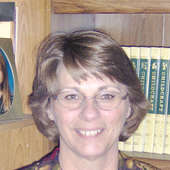Reaching our destination
I didn't expect it to come back quite so easily. Frankly, I thought it was gone for good.
You see, I've been directionally challenged since moving to Southwest Nebraska 12 years ago.
Prior to that move, knowing north from south and east from west was second nature. I was raised along the Front Range in Colorado where the mountains are always west and the other three directions easily plotted from that immovable point.
When we were in Denver last month we managed to carve out a couple of hours to spend with Danny's mom and our "Uncle Buck." It was late Saturday afternoon when we headed out, under overcast skies, to make our way to Buck's house. The low-lying clouds, heavy with what would become 10 inches of snow overnight, obscured the mountains, but until we reached Buck's neighborhood, we still knew where west was.
Once we turned off the main roads, however, Danny's usually reliable sense of direction abandoned him.
Surprisingly, I was no longer directionally challenged and was able to help navigate the unfamiliar streets.
It turned out to be a temporary condition. Once we got home, I once again forgot north from south and east from west. (I suppose it would be easier if east actually met west at some point in town, or if the streets dubbed east or west actually ran east or west, but I can't guarantee it.)
Apparently, visual cues are vital for staying on course. A study conducted by scientists at the Max Planck Institute for Biological Cybernetics in Tübingen, Germany in 2009 has provided empirical evidence that, in the absence of reliable cues, people really do walk around in circles. The reliable cues in this study proved to be the sun or the moon. In fact, as soon as the sun disappeared behind some clouds, people began walking in circles without even noticing.
The study also looked at possible physiological reasons for circular paths, testing whether or not differences in leg length or strength contributed to the phenomenon. Apparently they do not. Jan Souman, one of the scientists involved in the study, said, "Small random errors in the various sensory signals that provide information about walking direction add up over time, making what a person perceives to be straight ahead drift away from the true straight ahead direction."
Marc Ernst, the group leader added, "The results from these experiments show that even though people may be convinced that they are walking in a straight line, their perception is not always reliable. Additional, more cognitive, strategies are necessary to really walk in a straight line. People need to use reliable cues for walking direction in their environment, for example a tower or mountain in the distance, or the sun."
It's easy to lose our way. Even with cars equipped with GPS or an in-dash compass, we can end up 180 degrees from where we want to be, from where we thought we were going.
A recent case-in-point is the young family who opted to take a GPS recommended short cut, saving them 40 miles on their Christmas Eve drive. The couple, along with their 11-month-old daughter, spent 24 hours stuck in deep snows, the short cut wending through an isolated forest road.
Another couple, en route to their home in Reno, Nev., were stuck for three days on a remote forest road near Thompson Reservoir in Eastern Oregon, after following their GPS device, again, seeking a shortcut.
Nothing, it seems, is sure-fire, except the absolutes, the immovable, the unchanging.
And so it is with our spiritual journey, our eternal destination. Without absolutes, we're nothing more than dust in the wind, blown hither, thither and yon by whatever popular guru has taken center stage.
We accidentally ended up in Wichita, Kan., once. Our destination was Florida. No one ends up in heaven accidentally. There is but one path, and it doesn't include multiple takes, such as those found in the Hindu teaching of reincarnation. Nor can heaven be found while following the Eightfold path to Nirvana. We cannot earn our way to paradise with good deeds outweighing bad and we cannot meditate ourselves into a higher consciousness, a supreme state of mind free from the cares of this life, this day, this world.
There are absolutes that lead us home. And we do well to follow them, carefully. Even after mapping out the most scenic or the most direct route to any given destination, frequent checks along the way will save many missteps and U-turns. Highway signs, mileage markers, and "Welcome to...." banners keep us on course or alert us to a missed turn along the way, much as checking every new or unfamiliar teaching against Scripture can keep us alert to unintended course variations, some of which could prove to be fatal. And be on guard against the shortcuts, there may be danger there.
"Thy word is a lamp unto my feet, and light unto my path." Psalm 119:105 (ASV)

